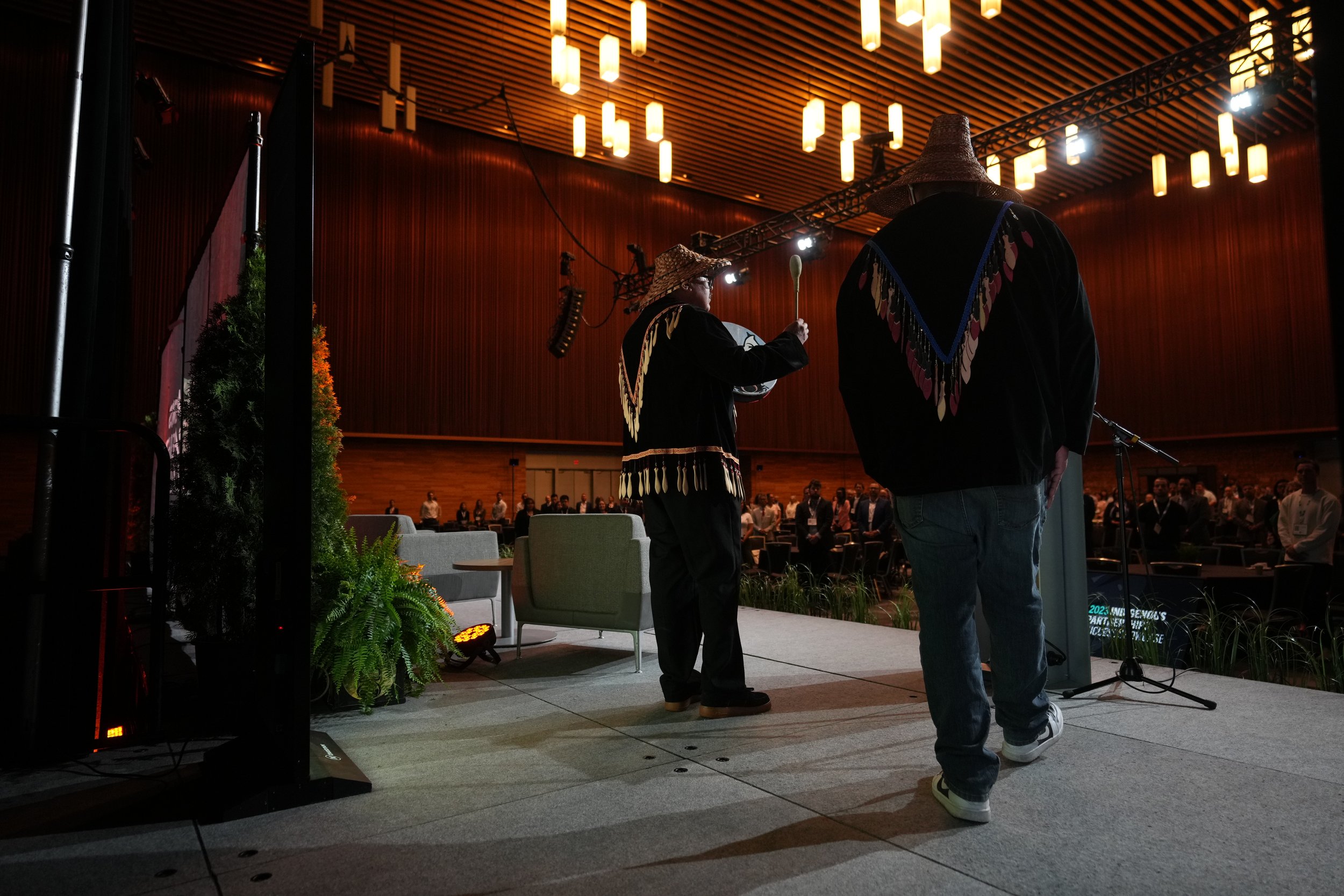Introduction
Economic reconciliation — it’s a phrase that’s entering the mainstream. It is being mentioned in the news, discussed at universities, promoted in government documents, and included on business websites. It is highlighted at events like IPSS — the Indigenous Partnerships Success Showcase.
What exactly is it? Ask around, and you will hear phrases like ‘meaningful engagement,’ ‘equitability,’ ‘a level playing field,’ and ‘a seat at the table.’ You will hear about Indigenous prosperity and opportunities to achieve it, about relationships based on dialogue and trust — relationships that respect Indigenous values and recognize Indigenous rights. You might also hear the words ‘collaboration’ and ‘partnership.’
The thing is, there is no simple, pat definition. And there shouldn’t be. Economic reconciliation is a complex concept. It emerges from a long history of injustices created by a systematic process of erecting barriers; these barriers profoundly harmed this country’s Indigenous peoples and restricted their ability to thrive. Flattening those barriers and undoing the wrongdoings of the past makes achieving economic reconciliation a complex process.
Also, there is no single definition because there is no one-size-fits-all approach, no single destination that can be arrived at that will demonstrate achieved success. There are hundreds of Indigenous communities across the country, each with their own circumstances, cultures, histories, and ways of approaching things. And while the basic underlying principles of economic reconciliation may be shared by all, the means for putting it into action can be vastly different for each.
Economic reconciliation is a concept that is growing and evolving. It can be considered a journey, embarked upon by Indigenous communities, who are joined along the way by others acting in the spirit of support, collaboration, and partnership.
As such, there is no one right way to do economic reconciliation. It may involve having difficult discussions, making bold choices, fumbling over occasional blunders, and having to incorporate new learnings. All these are important steps, and, along with the successes, they are to be celebrated.
This celebration is what IPSS is about — the sharing of stories about the challenges, the learnings, and the successes. Along the way, it will hopefully inspire others.
IPSS too has been growing and evolving. IPSS 2023, the fourth occasion of the annual event, was held in a new venue: the stunning Vancouver Convention Centre, situated on the traditional territories of the Squamish, Musqueam and Tsleil-Waututh Nations. The expansive space allowed for the hosting of even more delegates. More than 80 presenters graced the stage over the course of two days in early June, speaking on a wide range of topics, from real-estate development to forestry, from aquaculture to digital equity.
This third issue of Rights & Respect serves as a report of the event, offering highlights and sharing the words that were shared by the speakers. Some sessions provided examples of economic reconciliation in action, often made possible through partnerships. Others underscored issues to still be resolved, some pointed toward future actions.
What can’t be covered here are the many discussions that were happening offstage. The bringing together of people tends to foster engagement, and feedback about IPSS 2023 suggests that the event advanced many positive and fruitful conversations.
It is evident from the proceedings of IPSS 2023 that the journey of economic reconciliation is well underway. More and more, emboldened Indigenous communities are taking matters into their own hands and leading the way; working alongside them are many forward-thinking companies and organizations. Their combined efforts reveal an array of creative and innovative approaches — the results of which are already benefitting Indigenous peoples as well as all Canadians.
“We’ve seen political leaders in our Nations. We’ve seen cultural leaders in our Nations across the country. We haven’t seen a lot of business leaders yet. And I see that as the next curve. Why we’re assembled here is to start invigorating that type of future.”

